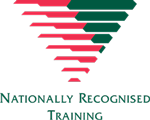Course Outline
This qualification is suited to those working as administrators and project officers. In this role, individuals use well-developed skills and a broad knowledge base to apply solutions to a defined range of unpredictable problems and analyse information from a variety of sources. They may provide leadership and guidance to others with some limited responsibility for the output of others
This qualification provides participants with the skills to obtain occupational positions such as:
- Coordinator
- Leading hand
- Supervisor
- Team leader
| Course code | BSB40120 |
| Start date | Please refer to the course intake dates provided below |
| Delivery mode | Blended delivery: Face-to-face training, Virtual Classroom (Zoom) |
| Duration |
Domestic: 52 weeks
** Please note: Duration in weeks may vary depending upon the amount of contact days per week. Duration may vary depending on the cohort and industry requirements |
Entry Requirements
RTO Requirements
International Students
The entry requirements for International Students are:
Must be 18 years old or over
Must have completed year 12 or equivalent
Must have a minimum IELTS score of 6 or
Must have a minimum TOEFL score of 60 or
Must have a minimum PTE Academic score of 52 or
Must have a minimum Cambridge English Advanced (CAE) score of 169 or
Must have a minimum OET score of B for each component
Domestic Students
Training and assessments are conducted in English. Applicants must possess sound written and oral English skills. You will be required to complete a Pre-training and Language Literacy and Numeracy Assessment.
All assessment tasks are completed using a computer and internet, and it is recommended that students have these available before or at enrolment. Student must possess digital literacy skills to be successful.
For inquiries regarding additional requirements, international and domestic students are encouraged to reach out to us either by phone at 13 13 89 or +61 3 9450 0500, or by visiting contact page.
Training Package
There are no pre-requisite or any other training package entry requirements to enrol in this course.
Pathways
Pathways from the qualification
While MITT may not offer all the qualifications indicated within the pathway, the organisation advises relevant progression that may be attained such as:
- BSB40520 – Certificate IV in Leadership and Management
- BSB40420 – Certificate IV in Human Resources
or upskill by attaining:
- BSB50120 Diploma of Business
- BSB50420 Diploma of Leadership and Management
Employment or occupational pathway
Job roles related to this qualification include:
- Coordinator
- Leading hand
- Supervisor
- Team leader
Assessment Methods
MITT utilizes a range of assessment methods to assess student skills and competencies. These are as outlined below:
- Question and answer/written assessment tasks
- Role play/practical demonstration and observation of skills (as applicable)
- Observation of skills in a simulated environment (as applicable)
Assessment will be either a Recognition of Prior Learning pathway or a Training and Assessment pathway. For a Training and Assessment pathway, participants are advised of the assessment requirements at the start of each training session. Students not achieving competency in any of the assessments will be required to undertake another assessment under the terms and conditions of MITT’s reassessment policy.
RPL/Credit Transfer
You can apply for recognition of prior learning, academic credit and work experience towards this qualification. During the course of your life you will develop a wide range of skills and knowledge. Through work, volunteer roles, family commitments and various tasks undertaken in everyday life, you are building up a bank of knowledge. The evidence of these skills and knowledge accumulated can be used to help you gain a qualification.
Click below for further details:
Course Intake Dates
Units of study
To be awarded this qualification, competency must be demonstrated in 12 units,
consisting of 6 core units and 6 elective units.
(NB: Elective units may vary by state and are subject to change to meet client and industry requirements)
| Unit Code | Unit Name |
| Core | |
| BSBCRT411 | Apply critical thinking to work practices |
| BSBTEC404 | Use digital technologies to collaborate in a work environment |
| BSBTWK401 | Build and maintain business relationships |
| BSBWHS411 | Implement and monitor WHS policies, procedures and programs |
| BSBWRT411 | Write complex documents |
| BSBXCM401 | Apply communication strategies in the workplace |
| Electives | |
| BSBPEF502 | Develop and use emotional intelligence |
| BSBPEF403 | Lead personal development |
| BSBOPS405 | Organise business meetings |
| BSBOPS401 | Coordinate business resources |
| BSBTEC401 | Design and produce complex text documents |
| BSBTEC402 | Design and produce complex spreadsheets |
** Please note: electives may vary by state and are subject to change to meet client and industry requirements.

